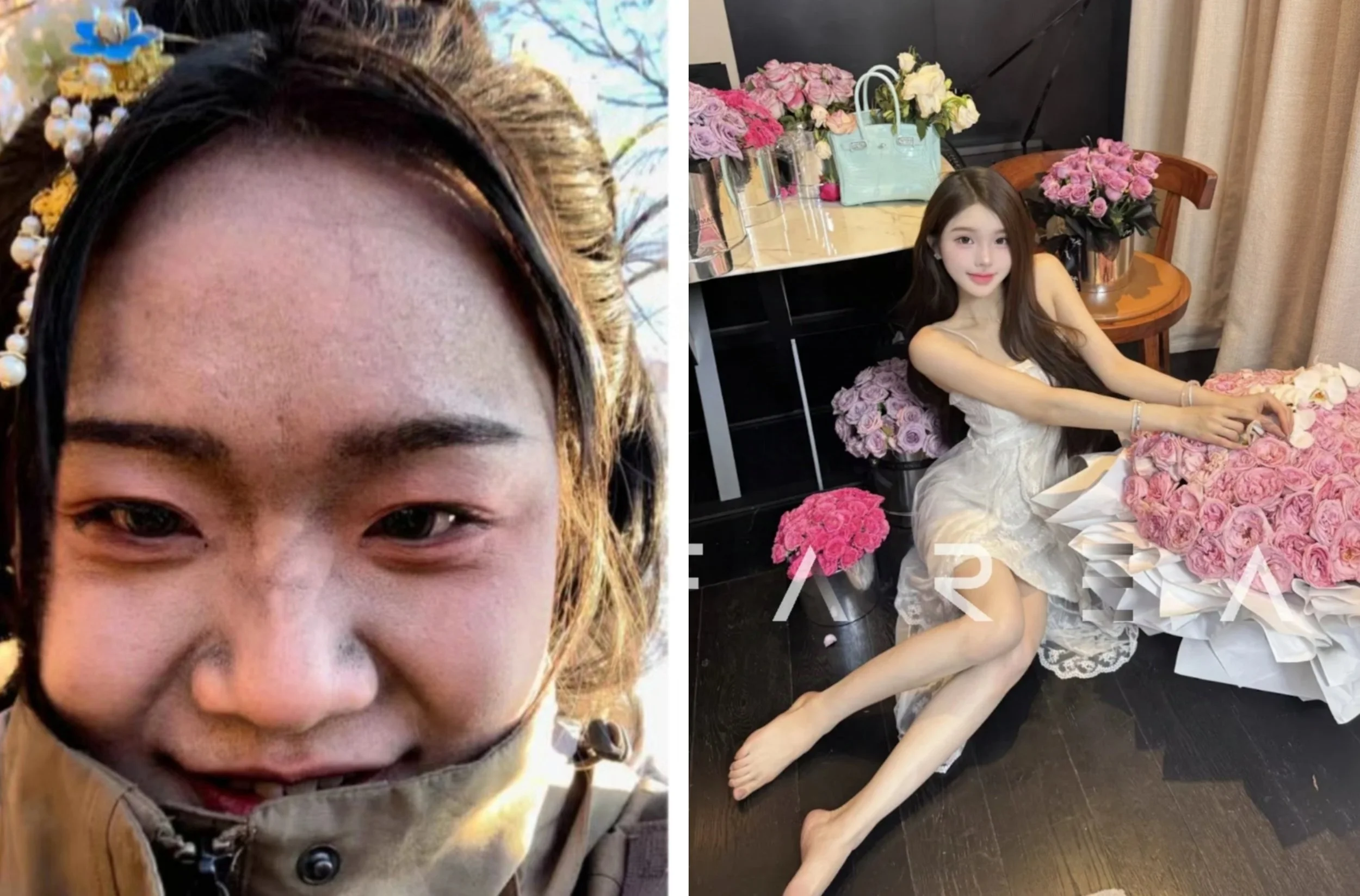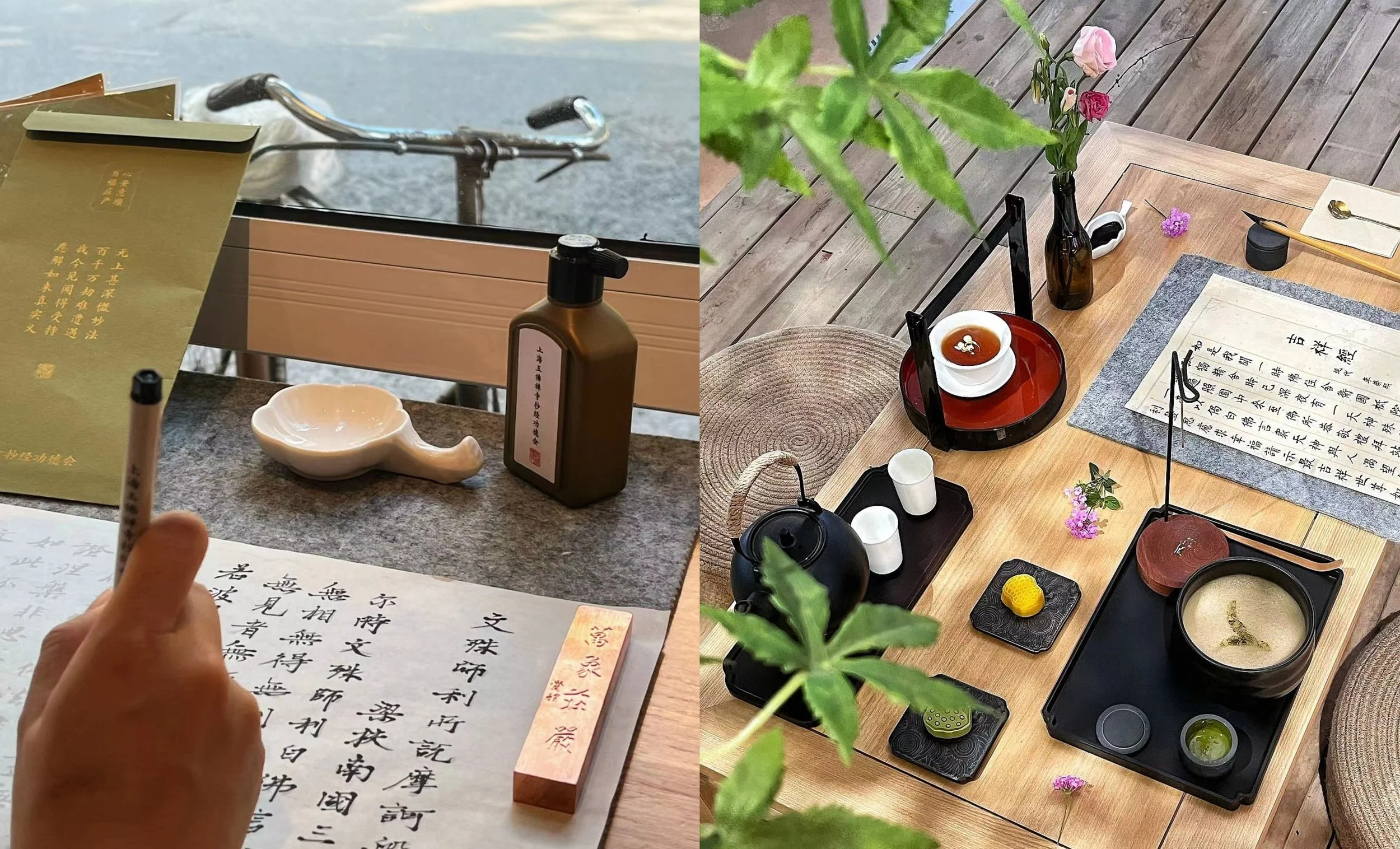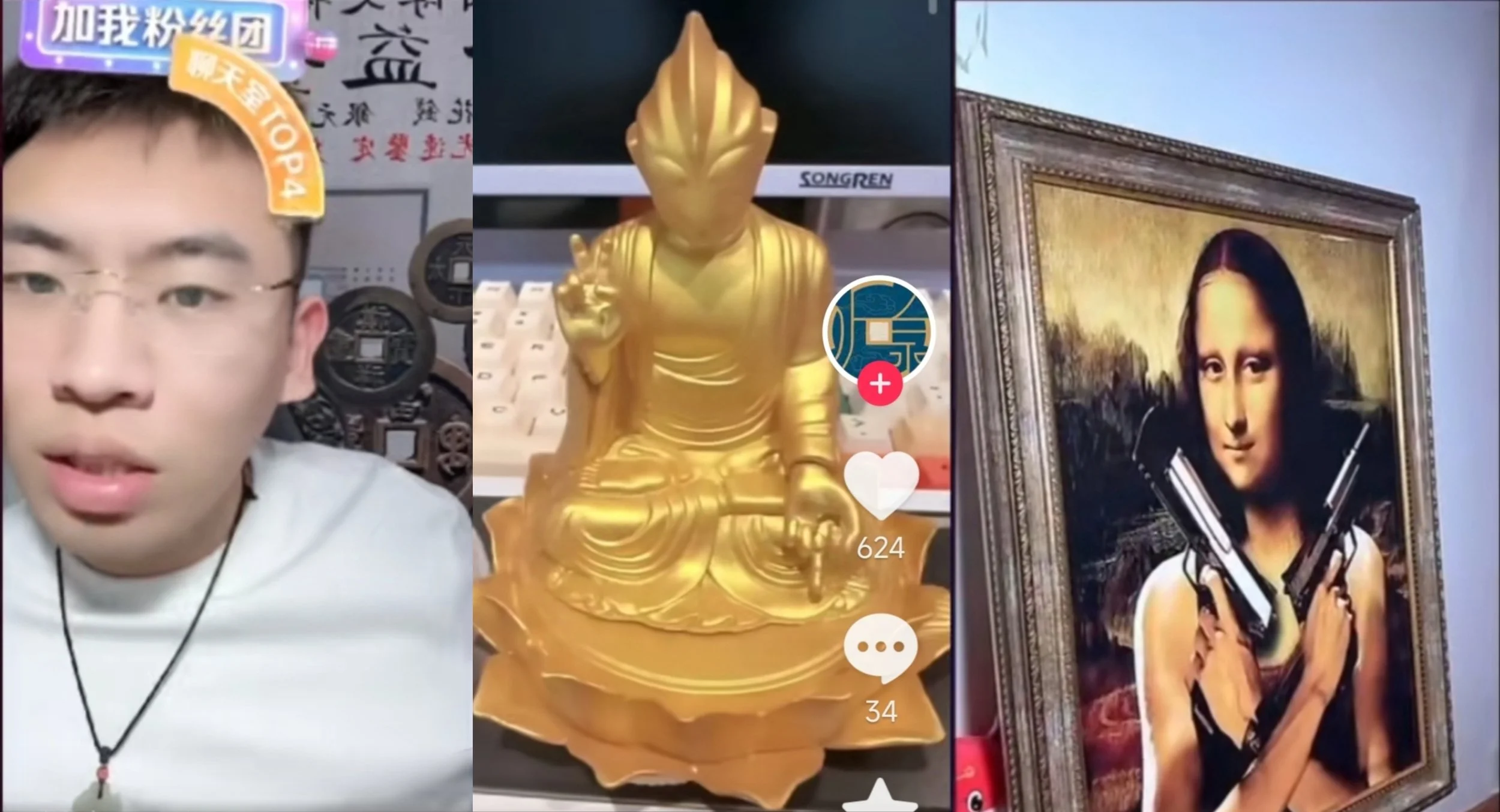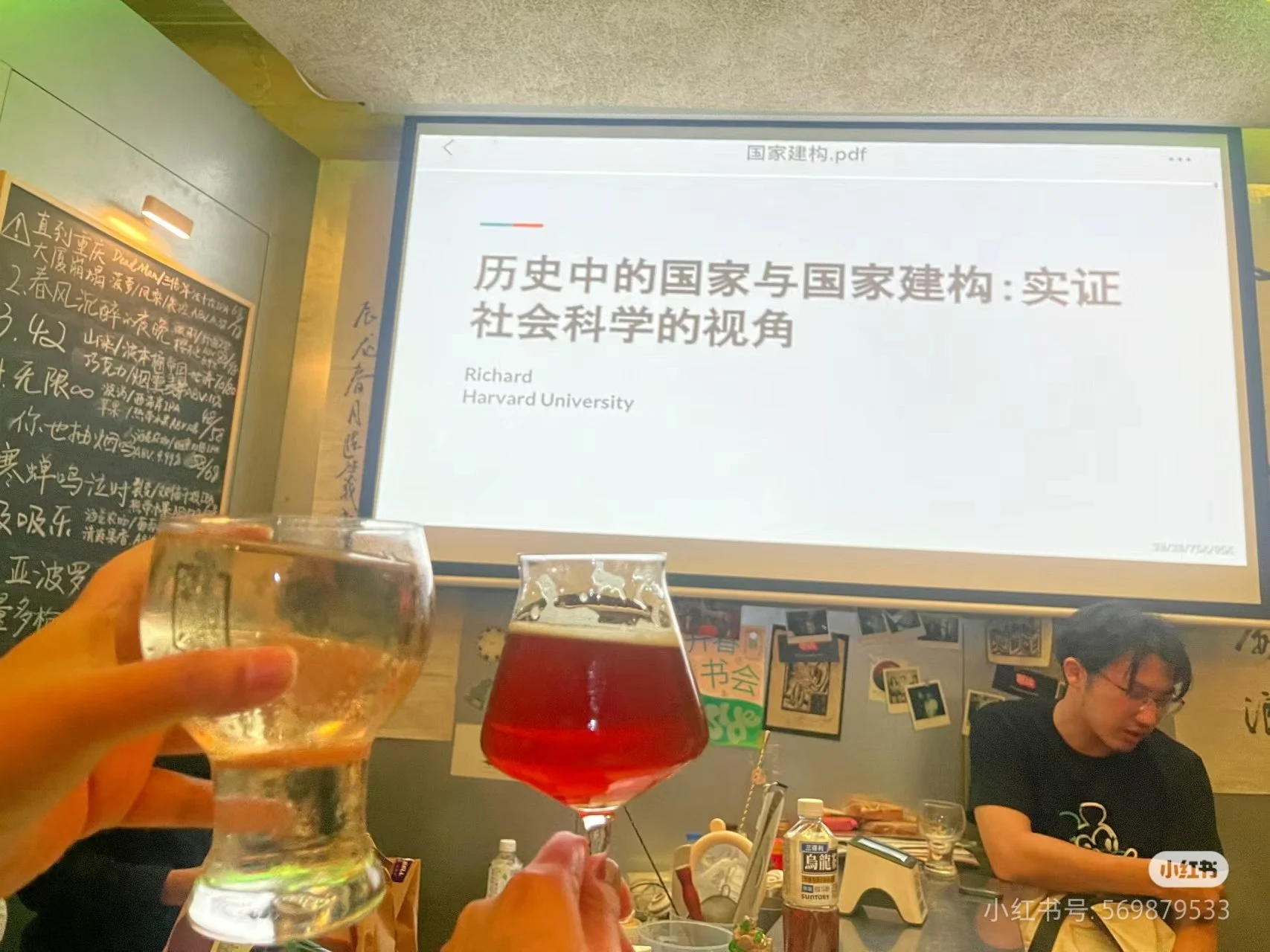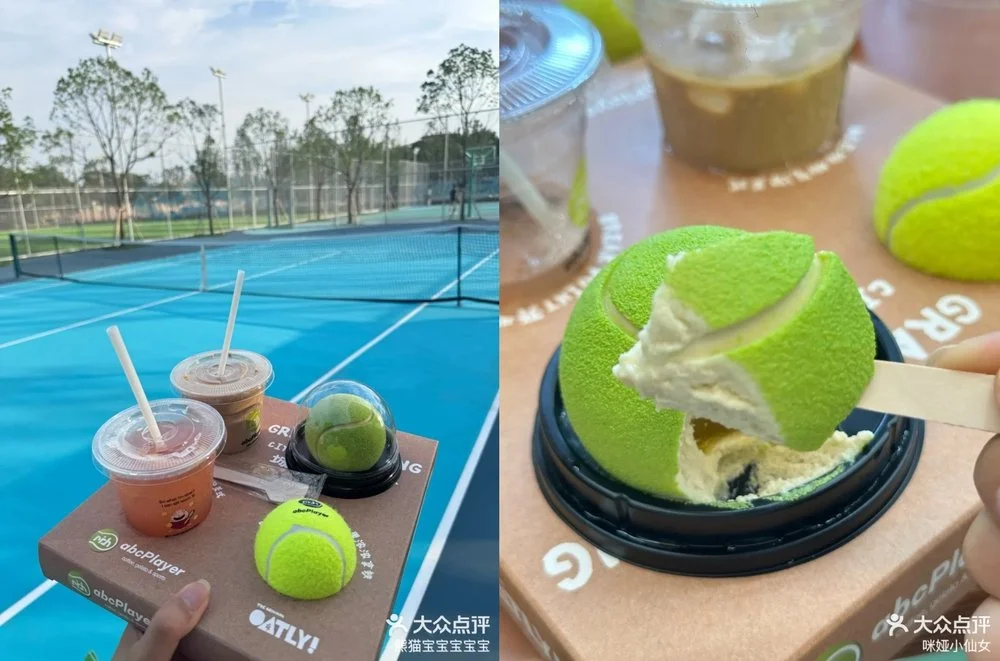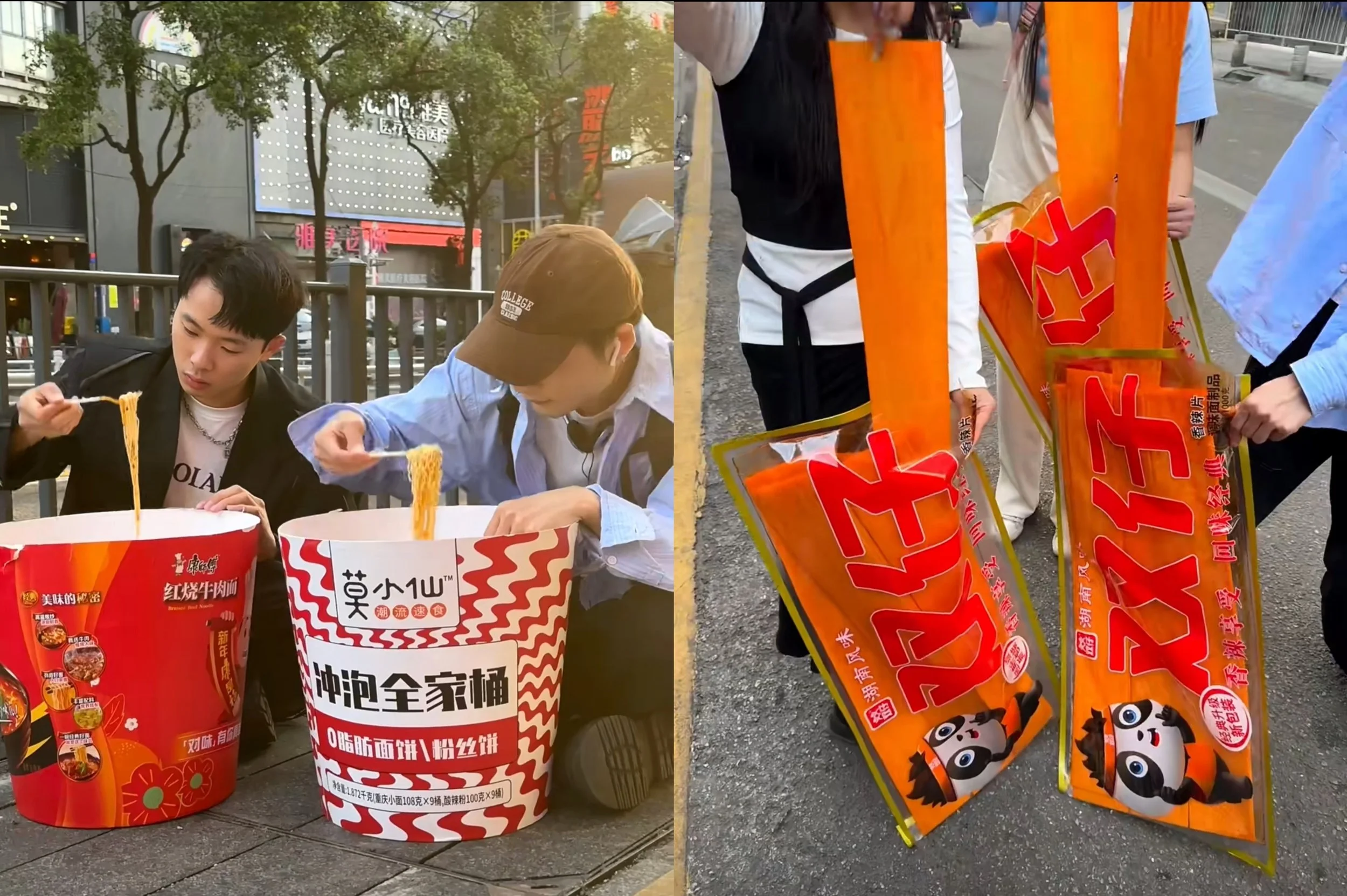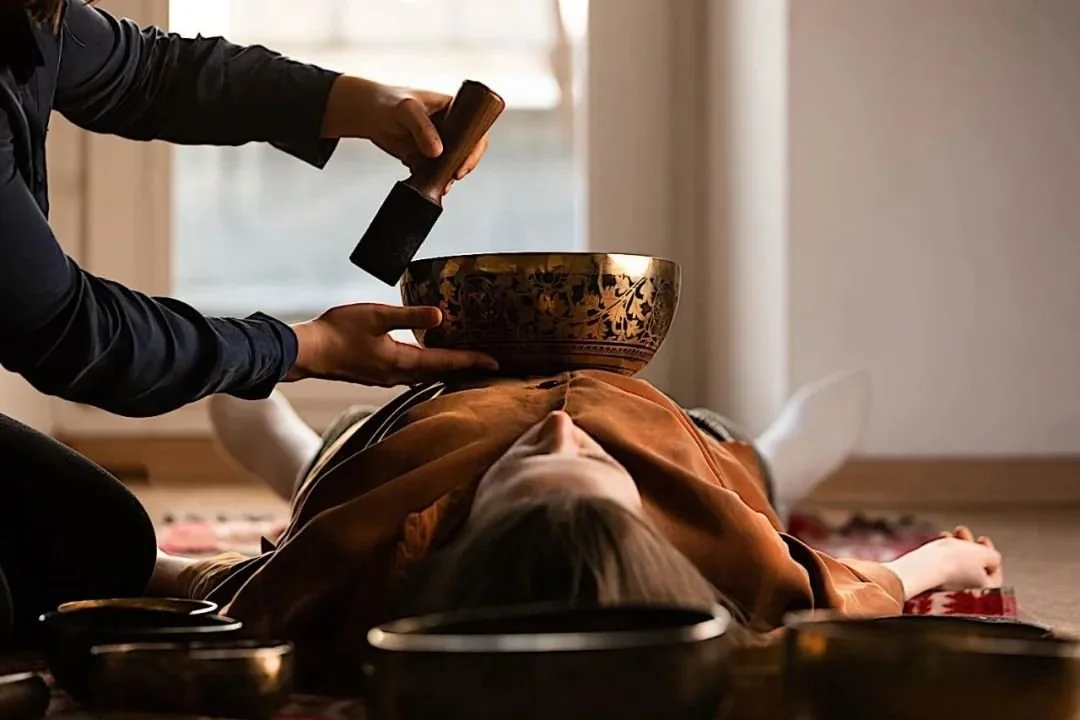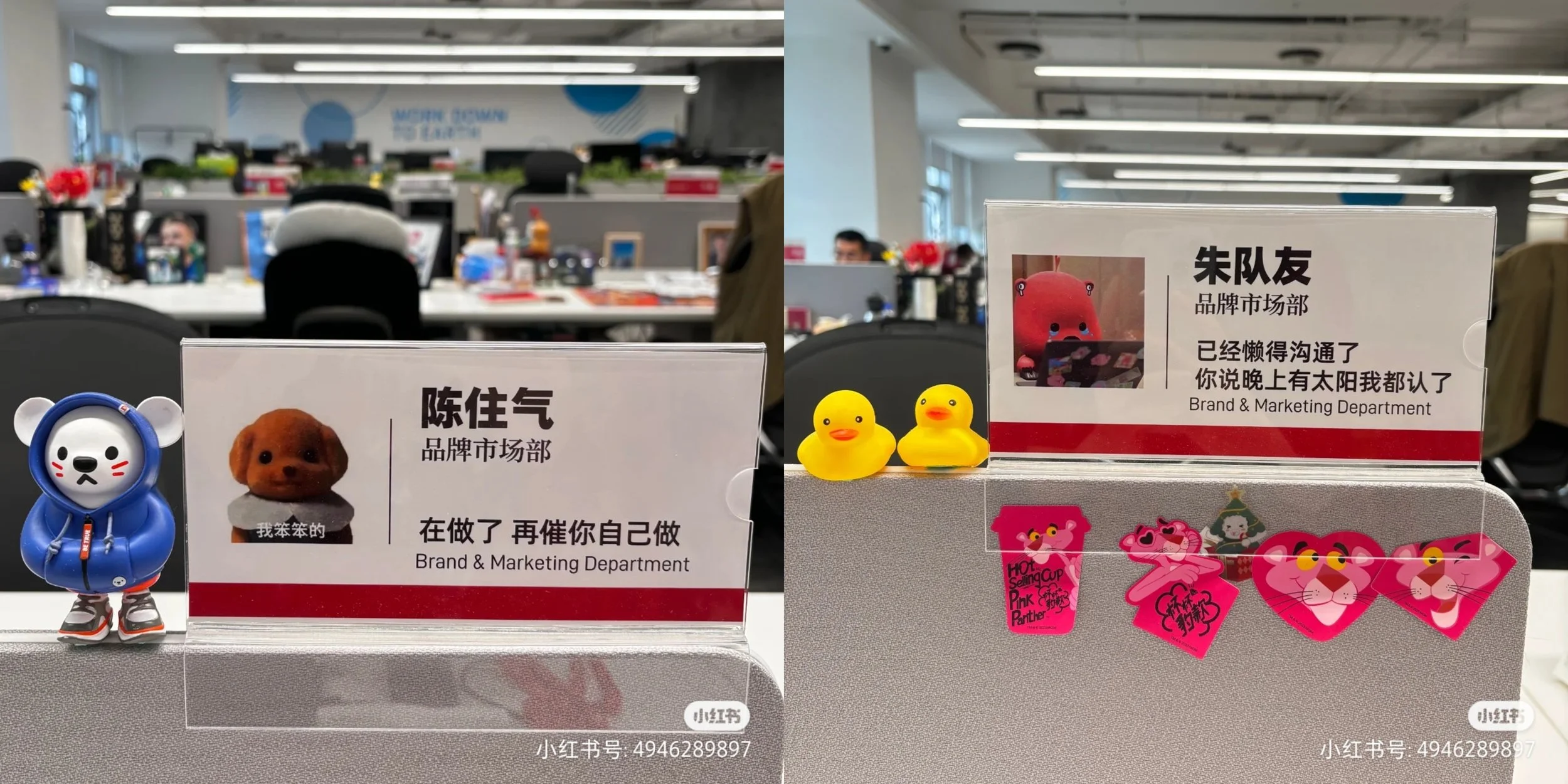The rise of scripture copying for inner peace among Chinese youth
More young people today are turning to peaceful, health-focused activities like yoga, meditation, fishing, or spending a day at a spa with a buffet and various entertainment options to unwind. Once a niche hobby among middle-aged people, scripture copying has now transformed into a relaxation trend for the younger generation.
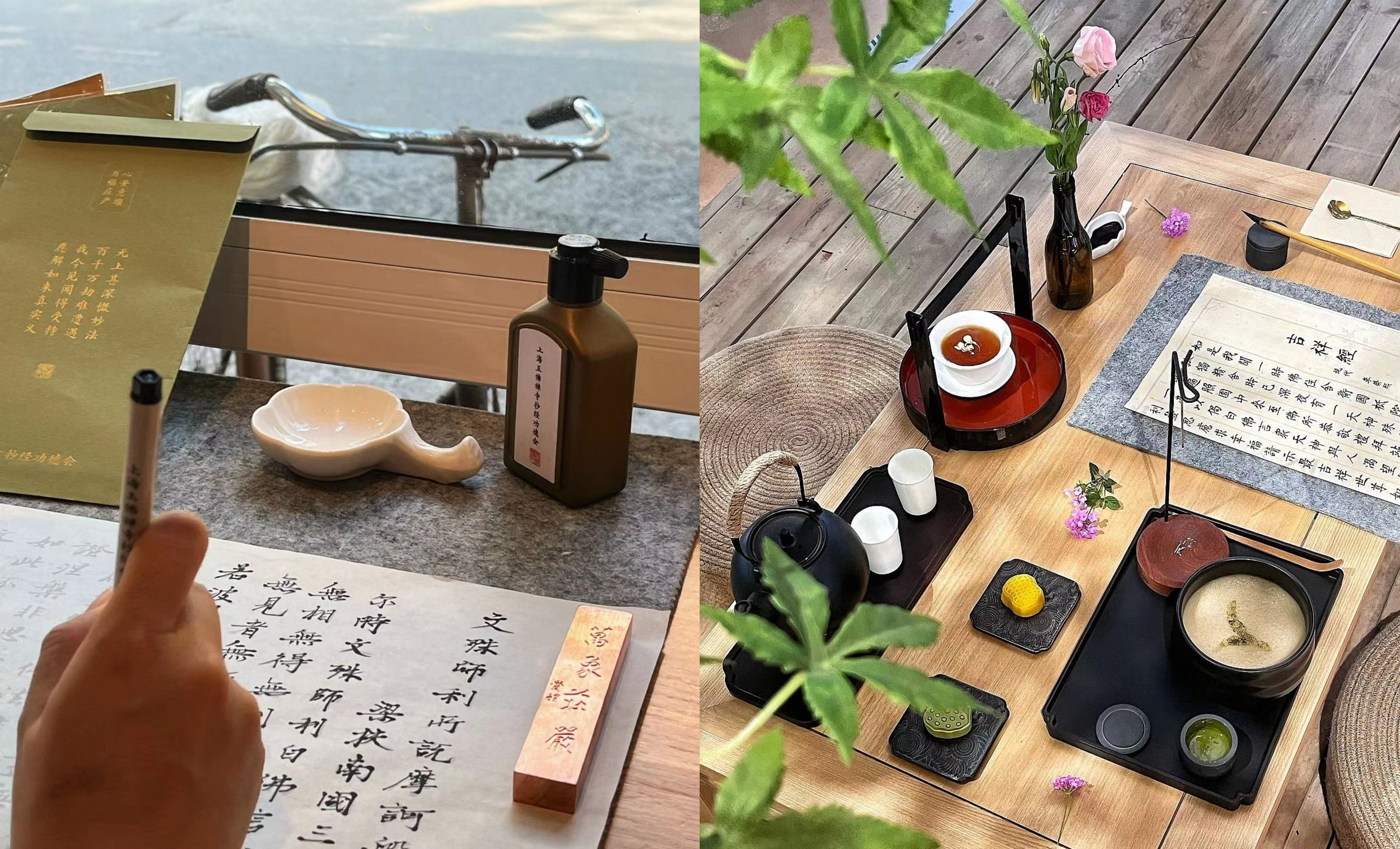
Image: Xiaohongshu @momo酱 @薄荷
While some may associate scripture copying with tedious childhood calligraphy lessons, for its fans, it's a holistic wellness practice. It not only promotes inner peace but also strengthens upper arm muscles and core balance while writing. Many describe the experience as a blend of mental and physical relaxation, leaving them refreshed and sleeping better at night.
Some temples offer free but highly sought-after scripture copying sessions. Meanwhile, wellness teahouses have introduced a service where patrons can enjoy fine tea, listen to calming music, and enter a meditative flow, free from distractions during the scripture copying process. Customers can also spend a few dozen yuan for group buying service, participants can spend the entire day there copying scripture, even without ordering tea.

Scripture copying activity free of charge in Longhua Temole in Shanghai. Image: Xiaohongshu @Ok一点点
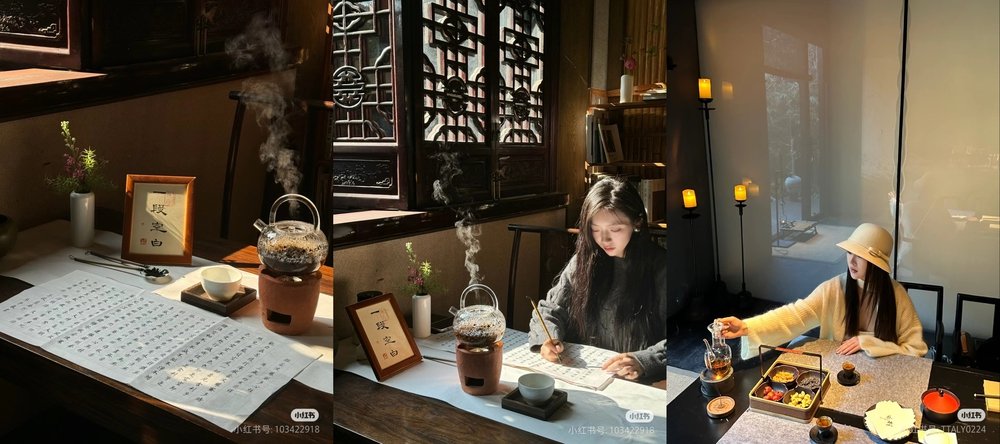
Paid scripture copying combo service in teahouses. Image: Xiaohongshu @大桃子moly @sunny吖
Paid scripture copying has become a key part of the growing "temple economy" and has even spread to other commercial spaces. Beyond wellness-focused venues like teahouses, more traditional brick-and-mortar businesses can tap into this wellness trend, offering crossover experiences that appeal to younger consumers.
Elderly influencers provide a counter-narrative to China’s intense work culture, proving that seniors can live life on their own terms, which is proving endearing to young Chinese consumers often labelled as “fragile youth”
From its roots in TCM to the playful emergence of Poop Map, China’s evolving attitude toward bowel health demonstrates an openness to blending ancient wisdom with modern tech-savvy trends
Xianyu has evolved from a second-hand marketplace into a hub for youth culture, side hustles, and digital innovation, offering valuable insights for foreign brands in China
A concise summary of last month's key marketing developments in China, highlighting valuable insights and their implications for brands.
After spreading over social media, China’s youth have demonstrated their need for community and adventure en masse causing a stir on their 50km group ride
China Skinny’s review of key marketing trends and lessons we observed over the month of October 2024.
China is experiencing a shift—or even a dilemma—in its bricks-and-mortar retail landscape. While high-end malls are seeing declines, non-standard commercial spaces are on the rise. Among these, Beijing’s THE BOX Youth Energy Center is redefining the offline retail experience by tapping into the spending power of the younger generation.
Chinese youth embody a rich tapestry of lifestyles and values that defy easy categorization. In a social media world saturated with flashy façades and overly curated personas, many still celebrate authenticity and self-discovery. This creates opportunities for brands to craft fresh, compelling stories that resonate with their desire for genuine connection.
As Chinese consumers increasingly prioritize health and wellness, fresh milk and fruit tea brands are stepping up, with HEYTEA standing out prominently. This article explores HEYTEA's health-focused marketing strategies and provides insights for brands looking to cultivate health-oriented perceptions.
From in-house exhibitions to various brand collaborations, Shanghai Mental Health Center at 600 Wanping South Road is tapping into mental health concerns, helping to reduce stigma around mental health.
As new generations redefine what weddings look like, brands are seizing the moment to connect with young couples seeking authenticity and personalization.
Scripture copying, once a niche activity, is now a rising wellness trend among young people. It is becoming part of the growing "temple economy," expanding from temples to teahouses and beyond.
Traditional collectibles have become a form of social currency among young people. From spiritual comfort to stylish accessories, livestreams and e-commerce have made these pieces more accessible. And people watch appraisal livestreams for whacky collectibles as an entertainment.
Jellycat CAFÉ has taken Shanghai by storm with its limited-time pop-up. Exclusive plush toys and immersive packaging performances highlight Jellycat's unique blend of emotional value and playful creativity.
A wave of viral videos in China are flipping the script on traditional Chinese-style parenting. Filmed from a child's perspective, these clips turn guilt-inducing phrases back on parents, pushing them to reflect on their parenting approach.
Ye, the artist formerly known as Kanye West, returned to Haikou, China, after 16 years, with fans endeared by Ye's fashion as much as his music. The whole city got behind the concert, ensuring fans had an all-encompassing Ye experience during their visit to the tropical island.
As the “lying flat” lifestyle grows among Chinese workers looking to unwind, more urbanites are seeing the allure of cruises return. This stress-free approach to travel fits perfectly with the cruise experience, leading more Chinese to choose cruises as their ideal escape.
Academic/Science bars are trending in cities like Beijing and Shanghai, offering a mix of intellectual talks and social relaxation in a laid-back, tipsy atmosphere.
Founded in 2019, Tiaohai Village (跳海酒馆) is a community-driven pub brand. Despite having around 30 locations nationwide, it's said to have achieved over ¥100 million ($14m) in revenue in 2023, together with over 200 highly active online alcohol communities. Check it out to learn about what sets Tiaohai apart from other pubs and how it truly connects with Chinese young people emotionally.
Who would have thought that the most fashionable item at the Paris Olympics would be the straw hat? Both luxury and affordable brands have launched their straw-woven collections, catering to the laid-back "chillax" lifestyle.
During the Paris Olympics, China's enthusiasm for sports was reignited, leading to a rise in popularity of cafés themed around sports like table tennis, tennis and basketball.
Snacks are getting supersized and catching attention on social media for their social appeal. With giant snacks, brands also enjoy greater exposure as well.
Standup paddleboarding is trending this summer, catering to Chinese consumers' desire for personalized experiences in water sports. And brands tapping into the trend are further enhancing its appeal.
As mental health issues such as work stress, unemployment and poverty continue to come to the fore, more and more young Chinese are pursuing emotional healing.
‘Crazy ID Badges’ among post-00s white collars have become a trending topic on Xiaohongshu. Many FMCG brands have jumped on it to winning favour from the young consumers.
Chinese consumers generally prefer smaller formats, but this summer is seeing a slew of giant gulps for everything from watermelon juice to ice coffee, meeting consumers needs for different occasions
This summer, many brands have started to introduce ice cup products to attract more consumers.
This spring and summer, wearing bandana head scarves for outdoor trips has become popular, making them a must-have fashion item for 'dopamine girls.'
Chinese youth have embraced Jellycats, stones, even mango seeds as another kind of ‘pets.‘ These alternatives provide emotional value without the time-consuming and attentive pet-caring routines.
Although wedding numbers in China are tanking, and singles are growing, segments of China’s romantic youth are spending large to find love








